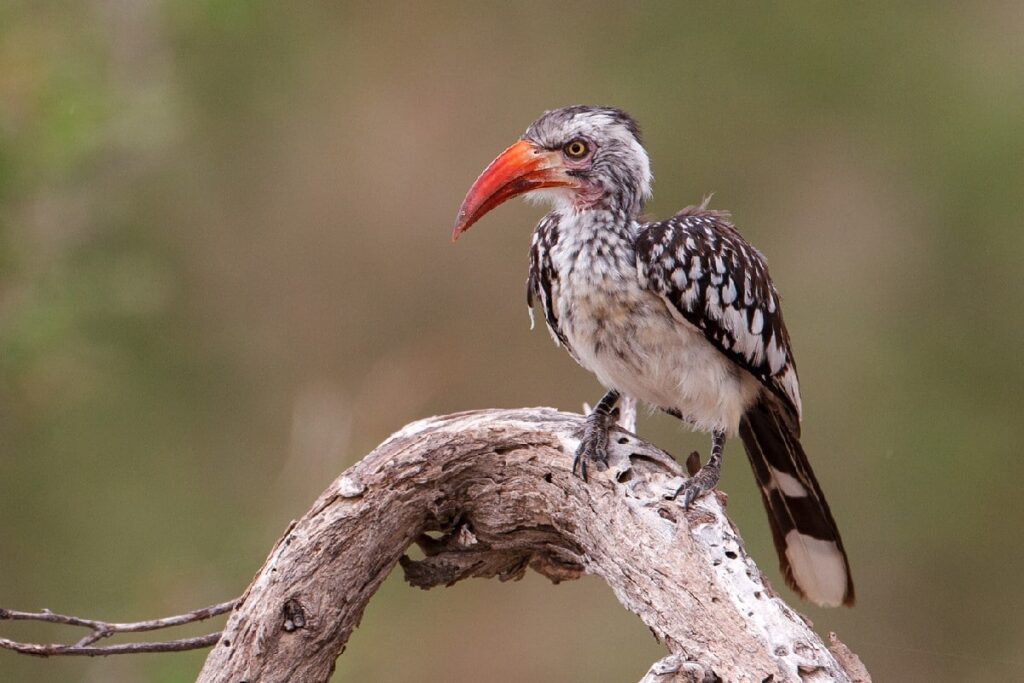The Okavango Delta is often christened the gem of the Botswana. This 7000 square mile fan-shaped area is characterized by papyrus and palm-fringed waterways, thick woodlands, ox-bow lakes, lagoons, flooded grasslands and fascinating wildlife.
This land of contrasts deep within the African interior is a product of millions of tonnes of sand deposited there by the majestic Okavango River that traces its origin from Angolan highlands.
The delta presents a throbbing ecosystem of flora and fauna that create some of the most evocative sights of extraordinary natural beauty and majesty. A less expensive alternative to an African safari, Botswana holds a special place of honor for the birds of the wilderness.
Observe the birds
At the Okavango, there are virtually endless places to see incredible wildlife because of the delta’s life-giving waters. The Okavango is divided into 3 geographical areas namely:
The Panhandle: Starting at Mohembo and extending down about 80km, the river runs wide and deep and its swamps are perennially flooded. Major attractions here are birding, fishing and visiting the numerous villages which line the river bank.
The Delta: A fan-shaped delta starts to emerge at Seronga and spreads over the earth to create and support a multitude of islands, lagoons, and a plethora of animal and plant species such as acacia, palms, reeds and sycamore figs. Major tourist activities here include birding, game viewing, and boating in the traditional Moroko canoes or via speedboats.
The Drylands: Perennial swamps in the delta give way to seasonal changes that transform into true dryland often characterized by land dotted with pans, scrub brush, and thorny acacia.
Five birds to be on the lookout for
One of the major highlights of the Okavango Delta is not only the teeming amounts of big game but also the variety of bird species that are unique to Botswana. A total of 444 bird species make the Okavango a birdwatcher’s paradise. Be on the alert for the following:
Red-billed oxpeckers
These grey birds with red bills can be spotted foraging for ticks and mites atop hippos that are semi-submerged in the water. This is evidence of their symbiotic relationship where hippos provide a food source for the birds, while the oxpeckers keep the hippos free of ticks and numerous other parasites on their tough hides.
![]()
Red-billed Hornbill

These commonly seen black and white birds cannot be missed by bird watchers in the Okavango. These birds have a special symbiotic relationship with dwarf mongoose while it is foraging during the day.
They alert the mongoose when a predator is in the vicinity, thereby keeping them safe while swooping in to feast on insects disturbed by the mongoose.
African Jacana
You can’t miss catching a glimpse of the African Jacana with its long feet that enable it to walk on floating vegetation such as lilies. They are unmistakable birds with a chestnut colored breast, black strips along the eyes, wingtips, and rear neck and can be spotted feeding on insects and other invertebrates atop floating vegetation along the waterways.
![]()
African Fish Eagle
The African fish eagle is akin to the American bald eagle albeit smaller in size. It is a conspicuous bird with a brown body, black wings and a white head. Its cry is distinctive too and it can be easily spotted perched on trees along the fringes of waterways scanning for fish who stray too far into the shallows, as well as smaller birds.
These top predators are precision hunters and rarely miss a kill.
![]()
Wattled Crane
The Okavango is home to the single largest concentration of the Wattled crane, a bird that is critically endangered. This large bird happens to be the largest crane species in Africa and comes second in the whole world after the Sarus crane.
It is characterized by an ashy-gray back and wings, white upper breast and neck as well as the distinctive white wattles that hang down from under the upper throat. They will be spotted digging vigorously in shallow waters searching for aquatic tubers and rhizomes, snails, insects, amphibians or even snakes when the opportunity arises.
![]()
The next time you go on a Botswana safari, don’t forget to bring along your camera and a pair of binoculars to capture the images of these and other beautiful birds that thrive in this impressive habitat.
Author: Devryn Panaino
Published:
Last Update:
Part of the Okavango Delta Safari & Birding Safaris Collections